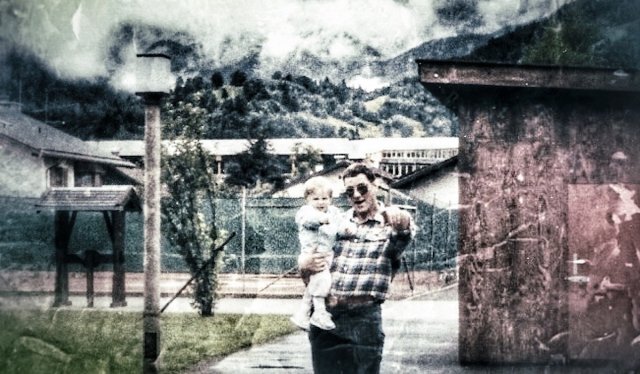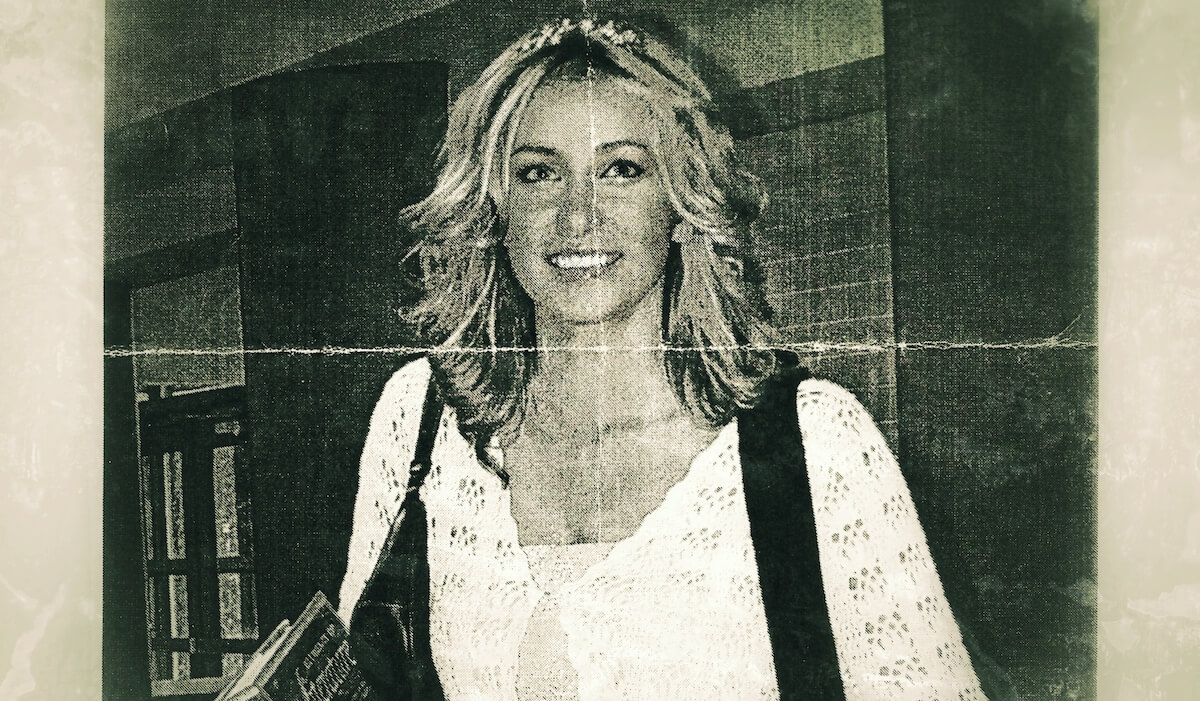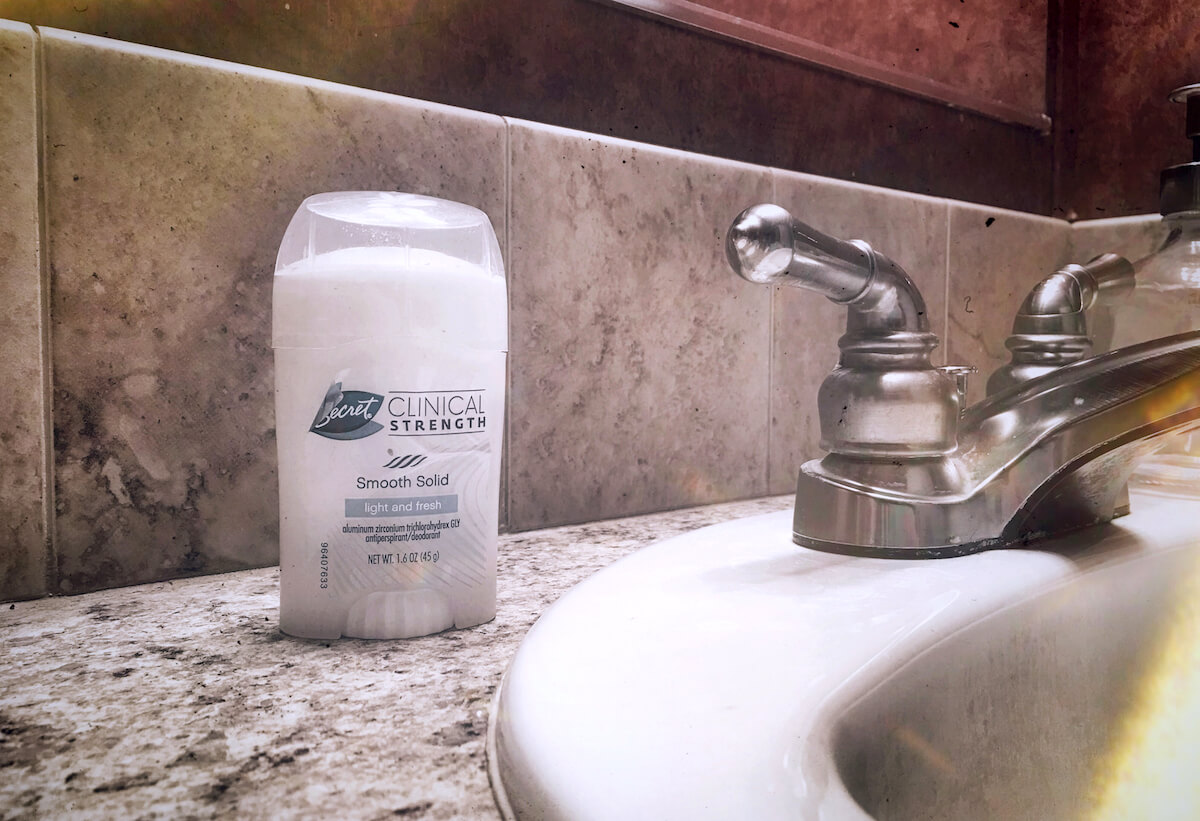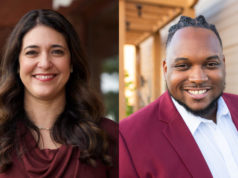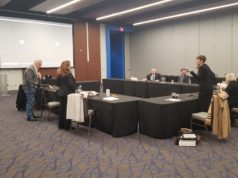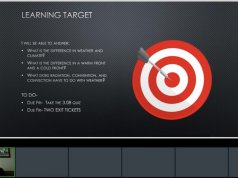
(Editor’s note: This is the first installment of a three-part series on living with disability titled “Biting Hearing Aids.” Read part two here and part three here.)
TISHOMINGO — Living with disability is not a linear path.
It’s a road carved uphill, weaving and winding, and just when I think I’ve got it all figured out, the blacktop cracks. Random sinkholes appear. Fallen boughs get caught between my feet. Heck, even lightning strikes every once and awhile.
It’s bumpy terrain. But there is one constant: the compass needle. It points in one direction. Up. Always up.
That’s not a bad thing. The obstacles are lessons, stories for me to collect. And when I stop and look back, I can see how far I’ve come.
The biggest obstacle I’ve already surmounted: figuring out I was deaf in the first place.
The Chernobyl accident
Like many deaf kids born in the 1980s, I was misdiagnosed.
Part of a military family, I spent my toddler years in Germany.
On April 26, 1986, at the Chernobyl nuclear power plant, a nuclear reactor core exploded during a failed safety test. And although the explosion took place in a Soviet-run country a little more than 1,000 miles away, my family came to learn a permanent lesson: fallout doesn’t care about political distinctions or land borders.
In addition to Ukraine, Belarus and parts of Russia, a cloud of radioactive material dispersed over much of Europe.
The military released letters and aired commercials, urging residents not to drink local cow milk, eat leafy greens or play in the sandboxes.
PART TWO
Pretending to hear taught me how to live by Tiara Blue
Mom said I did all three.
Why? Because I was obsessed with She-Ra: Princess of Power. My Granny Sue mailed me VHS recordings of cartoons from the United States. Anytime the television was on, only one thing blared from those speakers: “For the honor of Grayskull…”
And my mom didn’t like to check the mail.
By the time my mother listened to the announcement on the Armed Forces Network, it was too late. I had been playing in the outside sandbox and drinking milk for three months following the explosion.
The damage was extensive. For the next 25 years, Germany would spend just under €238 million on cleanup. To this day, they continue to find wild game and certain species of mushrooms contaminated with caesium-137.
I was a talkative infant. Mom has a cassette tape of me babbling and calling her by name. But, by two years old, my speech skills halted completely. Then regressed.
My mother blamed Chernobyl. Doctors dismissed her theory, pointing out that I didn’t have thyroid cancer.
But the doctors failed to check my TSH levels to rule out a thyroid condition. See, as radioactive iodine (I-131) degrades, it emits radiation, which once absorbed by the thyroid gland, destroys the cells and surrounding capillaries. The immune system responds by rejecting the decayed tissue.
It wasn’t until after I gave birth to my first child that a doctor showed me an X-ray of my thyroid and pointed to where the little butterfly-gland should be. The majority of the tissue? Black. Or as my endocrinologist said, “Dead.”
Sometimes, I wonder what would have happened if the doctors had checked out Mom’s concerns instead of dismissing them. Maybe they would have identified the thyroid damage and made the correlation that radiation exposure can also destroy hearing sensory cells. Maybe they would have realized I was deaf.
But, they didn’t.
Instead, they told my parents I had an intellectual disability. Mom recalls the doctors actually used the term “mentally retarded.” (Like I said, the 1980s, baby.)
Follow @NonDocMedia on:
A special education
Once we got back to the United States, I spent the latter part of kindergarten and the early part of first grade in Special Education, a cinderblock building set apart from the rest of the school.
My classmates ranged in ages 5 to 18. We were a rag-tag bunch. Physical, intellectual, and developmental limitations, with a few emotional disorders sprinkled in.
My friend — I’ll call him Jake — had problems with hitting. He was my age. The teacher warned us to stay clear of him when he got in “one of his moods.”
RELATED
‘My family was too poor to afford deodorant’ by Tiara Blue
Shocker of shockers, the deaf kid didn’t listen.
I’d sit beside Jake and pretend to read books. And he’d pretend to rage while staring at the pages through clenched fists. For whatever reason, we clicked.
I hate to admit special ed bored me, but I liked my classmates. They were sweet. The day an adult announced I would move to the first-grade building, my classmates stood from their seats and clapped. The sole student in a wheelchair gave me a soft fist bump.
I smiled until my cheeks hurt, and before leaving, I told Jake that if he stopped hitting, maybe he’d get in “real” first grade too.
Jake joined the first-grade class a month or two later — and wouldn’t you know it — he adjusted better than I did.
My first hearing aids
We had a young teacher. Wavy, blonde hair. Bright, blue eyes. She looked like a California Barbie doll, but she was tougher than the two-inch wooden paddle she kept in a drawer.
I don’t know who had it worse: the deaf kid or the teacher teaching the deaf kid.
The reprimands were constant. For not listening. For daydreaming too much. For drooling on the desk. (It’s hard to stay awake when everything sounds like Charlie Brown’s teacher.)
But I think when I cheated on the spelling test — that was the wake up call for both of us.
Spelling tests were torture because all the words RHYMED. My teacher could say “hat, cat, rat, mat, pat, bat.” On her lips, it all looked the same. At some point, I’d throw my hands up and just start writing what I thought I saw and heard: one word, over and over. In a fit of irritation, my teacher told my mom, “It’s like she is trying to fail!”
In what I flattered myself as a stroke of genius, one week I planted the spelling list at the edge of my desk’s cubbyhole. The teacher called out a spelling word. I glanced at the list to see where we were, then…
BAM! A powerful hand slammed across my desk, and I looked up into those bright blue eyes. I can’t remember exactly what she said, but it was something along the lines of “Cheating is bad.”
And I got personally acquainted with that wooden paddle.
I cried so hard, even the teacher seemed to feel bad. She let me sit out recess in the class beanbag chair. My voice garbled with tears and snot, I chanted, “I’m sorry, I’m sorry, I’m sorry….”
By recess’s end, to my surprise, she knelt to my level and said, “I believe you.”
My teacher told my mom she thought I might be deaf. Mom told her I had already taken a hearing test and passed. My teacher persuaded Mom to get my hearing tested one more time. A month later, an audiologist confirmed her suspicions.
I was bilaterally deaf. Over 50 percent loss in both ears.
And to my delight, the diagnosis came with a gift: neon pink hearing aids.
Those hearing aids were like Christmas on a hot day. They made me the coolest kid on the playground.
Gaggles of girls and boys swarmed me at the tetherball stands. They loved sticking the hearing aids in their ears and singing and yelling and rubbing the sides to make them squeal.
Being deaf gave me a spotlight I never even knew I had been craving.
It gave me identity.
With the help of my first grade teacher, I had scaled the first hump in the hill — figuring out I was deaf — but I still had a lot of road to cover. Because being disabled is not a linear path. It is winding and weaving, and just when I think I can flip on the cruise control…
The blacktop cracks.









